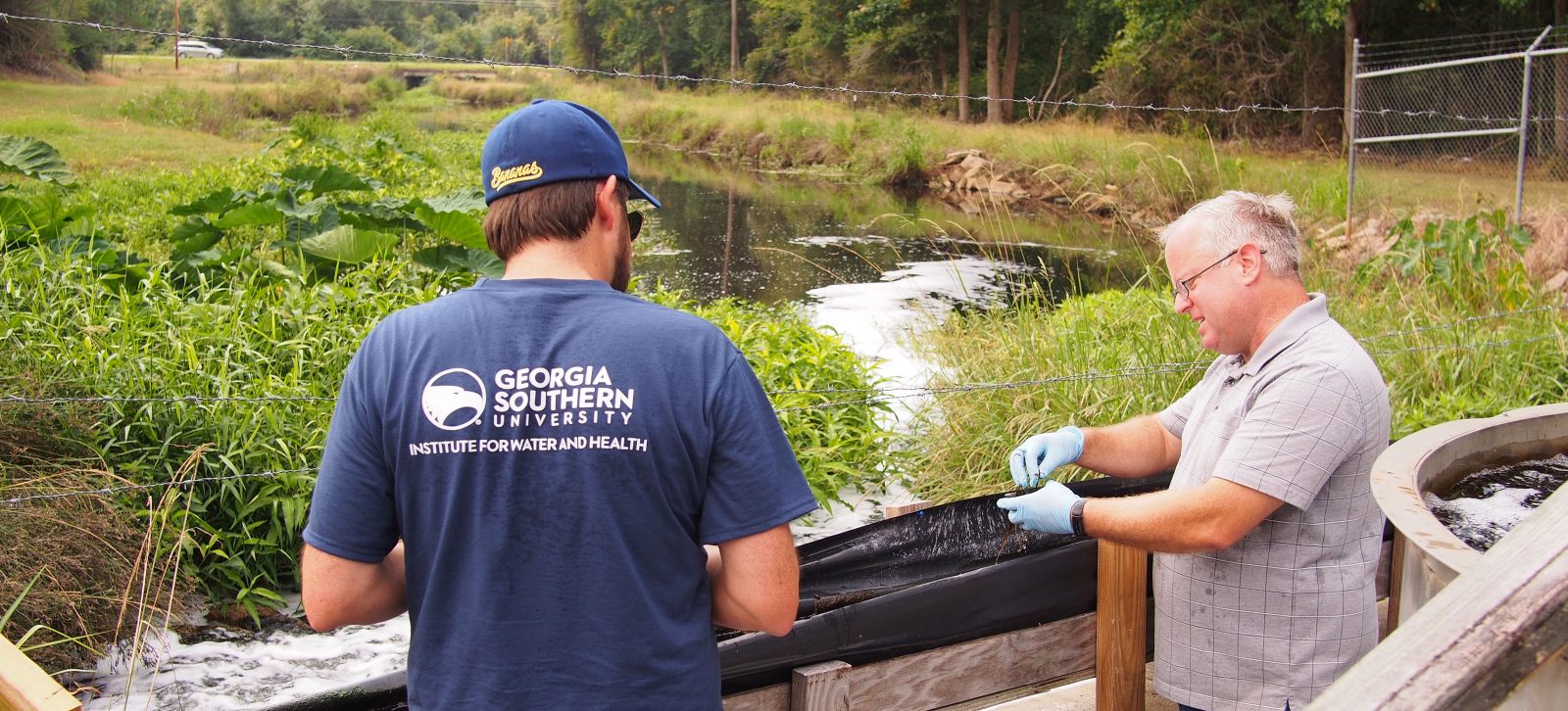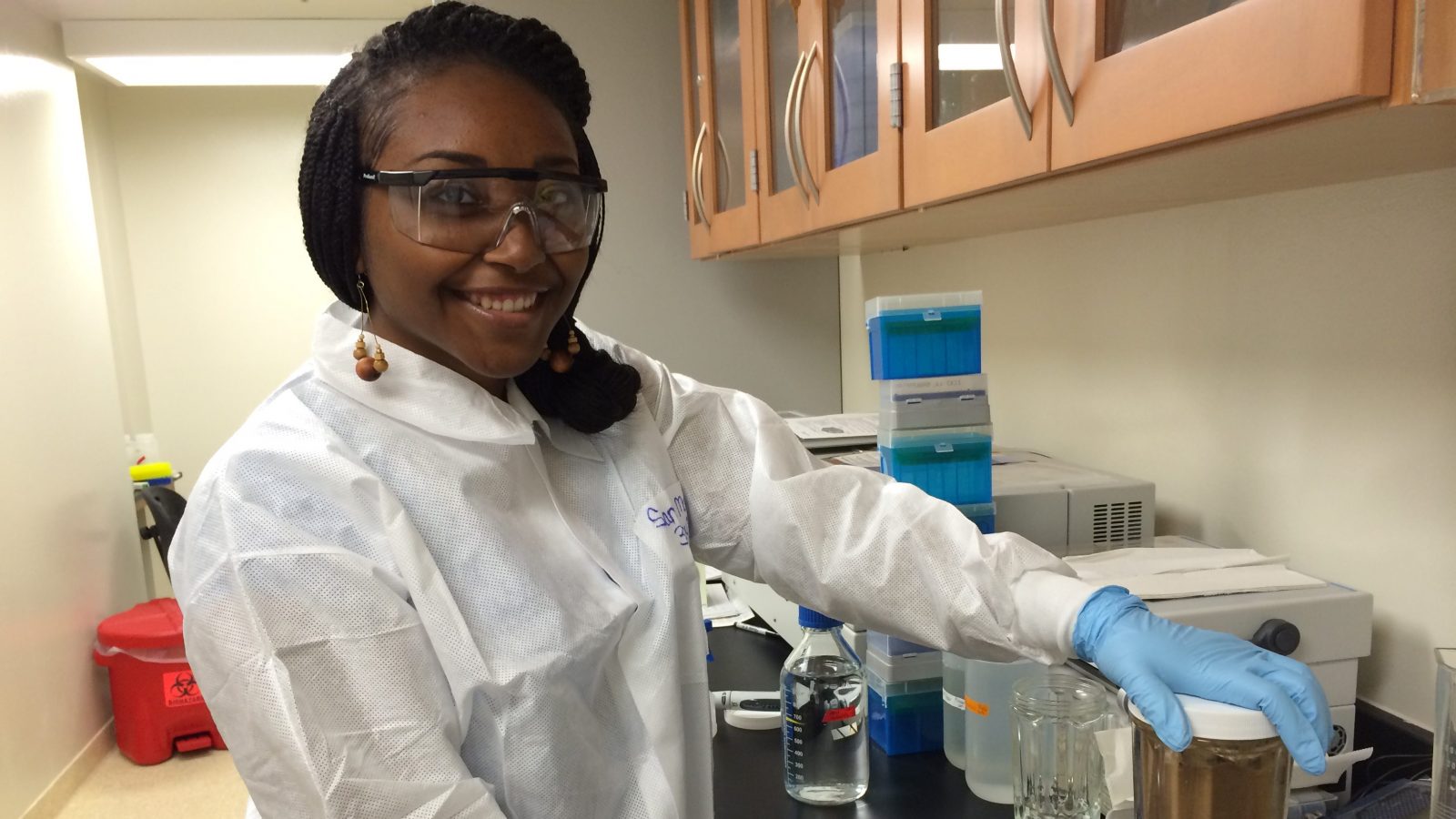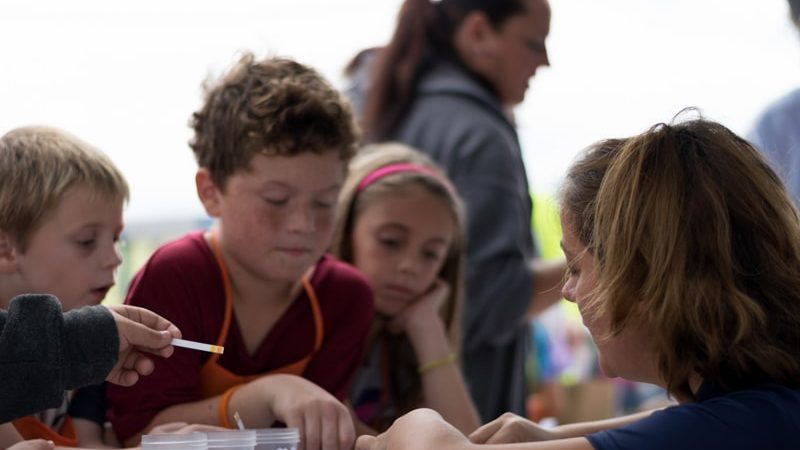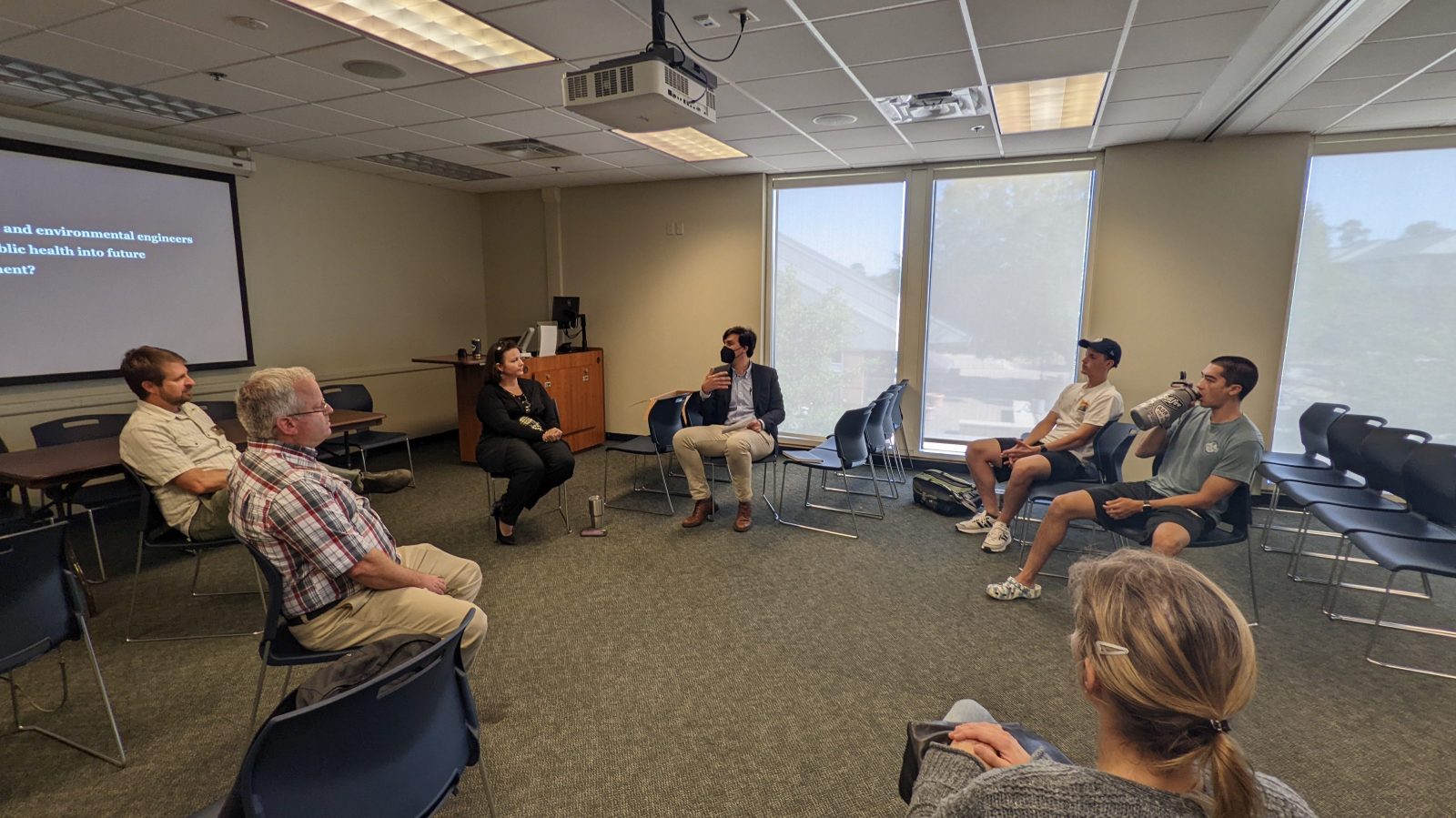Programs
Applied Research and Innovation

The IWH uses cutting-edge research applied to real-life challenges. The Institute develops practices for digital water infrastructure, sustainable wastewater treatment, rapid water testing, and source tracking of pollutants through partnerships with stakeholders in Georgia. Learn more about our research projects.
Environmental Assessment Services

The Rapid Response Research (RRR) program puts resources where they are needed most when they are needed most. Utilizing Microbial Source Tracking, data collection, and advanced analysis, the IWH provides scientific expertise and equipment to serve our communities. Contact the IWH if you need water quality services.
Student Research Support

The Water Agent program engages students in the front lines of water quality science and community health. Partnering with a variety of agencies and organizations for multidisciplinary internships prepares our students for the STEM-focused workforce.
Capacity Building for Community Groups
The IWH offers technical certification courses, collaborative meetings, and grant writing workshops to enhance the capabilities of our local organizations. The IWH will provide planning services for non-profits and volunteer organizations that operate at the nexus of water and public health.
Water and Health Education

Community-Based Participatory Research programs are guided by residents to build investigations into challenges that result in practical solutions. K-12 educational programs create value and respect for the natural world and our fellow Georgians.
Environmental Justice & Participatory Research

The IWH focuses on local and global Water, Sanitation, and Health (WaSH) issues for underserved communities, connecting residents with policymakers for equitable solutions. Investing in long-term, dynamic relationships is essential to establishing trust and legitimacy in this field.
Last updated: 10/25/2022
